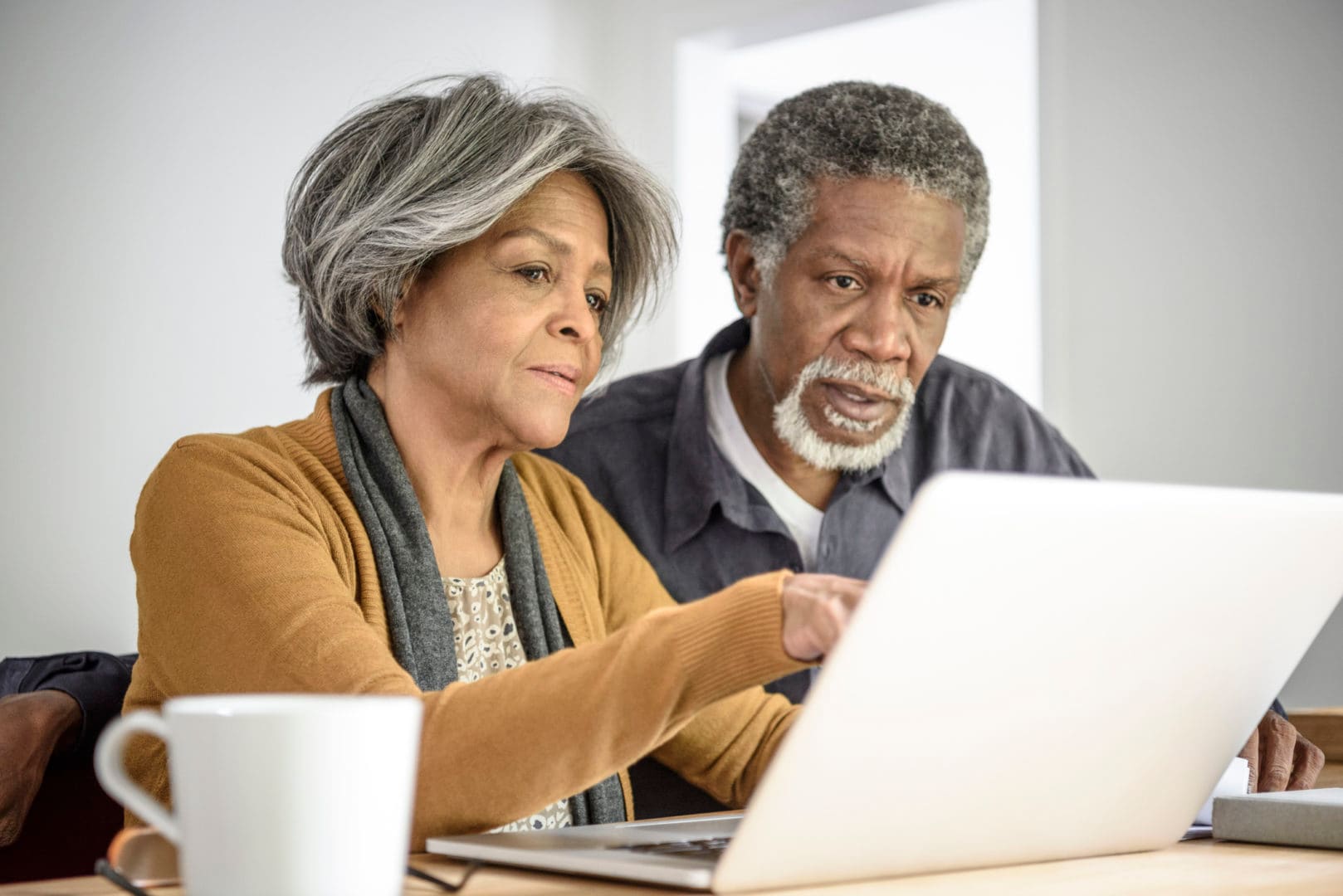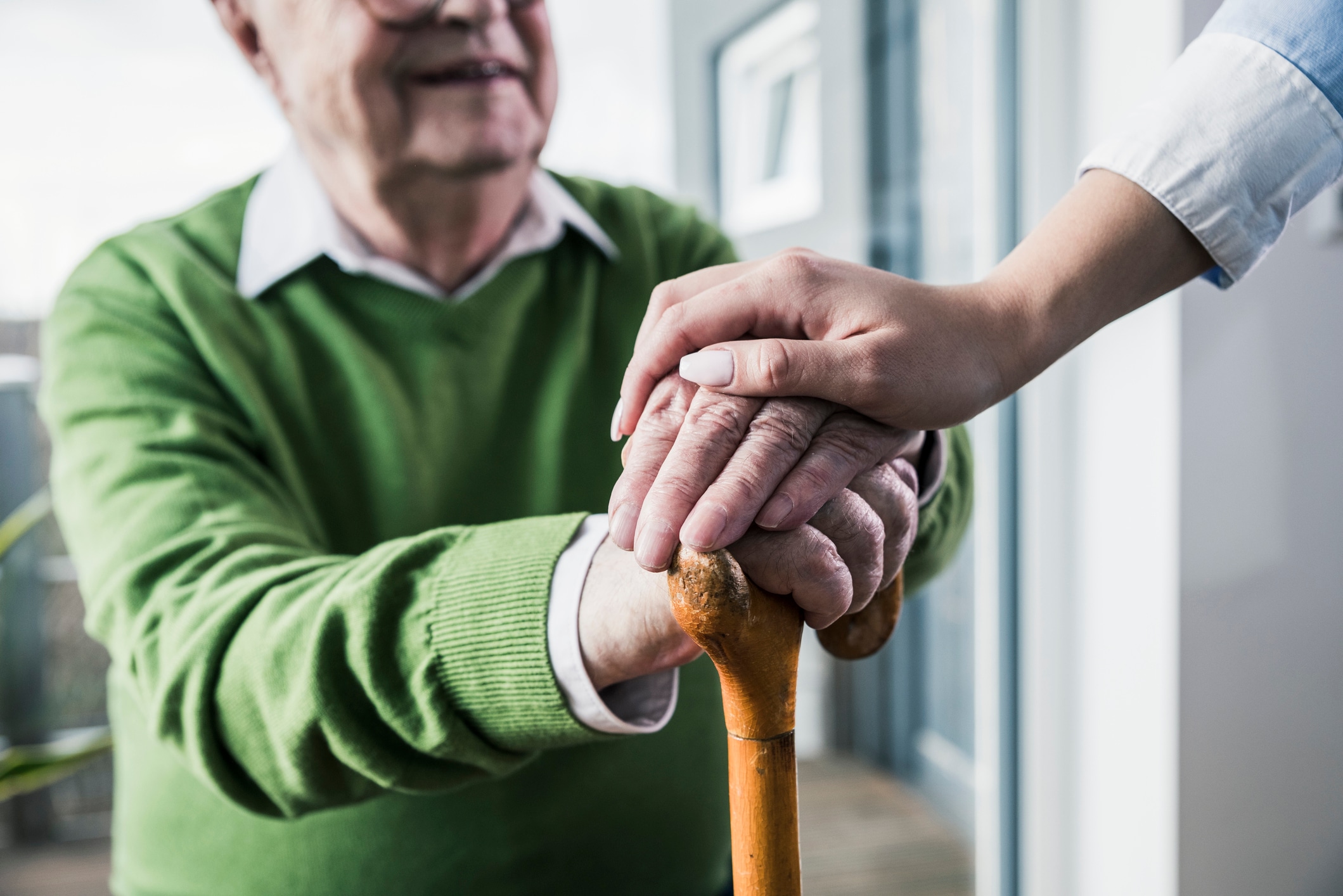Finding out that your spouse or partner has been diagnosed with any type of disease can be a scary and difficult process. And if you’re staring down a dementia diagnosis, you may feel those emotions as well as a range of others — especially if the diagnosis was a long time coming.
“The date of diagnosis is frequently both a relief and absolute devastation,” says Jill Johnson-Young, a licensed clinical social worker, founder and CEO of Central Counseling Services of Riverside and Murrieta, California and author of the new book, “The Rebellious Widow.” “Relief because they have been through rounds of doctors trying to get someone to tell them what’s wrong and what they can do about it. Devastating because nobody wants to hear the word nor imagine what is coming.”
She says you might also experience:
- Denial that there’s no cure for the disease.
- Sadness for both yourself and your spouse.
- Fear over medical costs and breaking the news to extended family.
Thankfully, there are ways to make this difficult situation a bit easier, according to Johnson-Young and other experts. Read on for their advice.
Know you’re not alone
No matter how you’re feeling, as you begin to navigate this life-changing situation, know that there are others in the same boat. About 10% of dementia caregivers are taking care of a spouse, according to the Alzheimer’s Association.
Don Campbell, who lives in Mississauga, Canada, is one of them. When his wife, Patricia, was diagnosed with dementia four years ago, he was in shock and wasn’t prepared. He also worried about the impact the diagnosis would have on them as a couple.
“I was initially afraid that our communication would decrease, that we would have problems relating to each other,” he says. His wife was always so caring and loving, and he had never been so close to someone with dementia before. “It took me a while to regain my composure,” says the 84-year-old.
Learn more about dementia to prep for what’s to come
Dr. Scott Kaiser, a geriatrician and director of geriatric cognitive health for the Pacific Neuroscience Institute at Providence Saint John’s Health Center in Santa Monica, California, recognizes the profound impact a dementia diagnosis can have on all aspects of someone’s life. That said, the impacts can vary greatly from person to person. “It can be difficult to anticipate the way things will develop in any given situation,” he says.
Nonetheless, educating yourself on the disease is one of the best things you can do as a caregiver, says Angela C. Gentile, a registered social worker and the author of “Caring for a Husband with Dementia: The Ultimate Survivor’s Guide.”
Here are some ways learning more about the disease can help you respond in the most supportive and understanding ways, according to Gentile.
You’ll have a better sense of what symptoms to expect, depending on the type of dementia they have. For instance, in Lewy-Body dementia, hallucinations are common, whereas that’s not the case with Alzheimer’s disease, points out Robin Squellati, a certified nurse practitioner who has a doctorate in nursing education and serves on the faculty of Walden University’s Master of Science in Nursing program in Minneapolis.
Knowing that apathy is a common symptom can help you get creative in how you engage your spouse. “If the caregiver realizes the person with dementia has lost the will or ability to initiate interactions or activities, then the caregiver can try different strategies to encourage activities and engagement,” says Gentile. Suggest activities they’ve always loved, like puzzles or watching a favorite game show.
That said, Gentile warns: Don’t be surprised if nothing works — and you may have to accept that your spouse is content not doing much. “All you can do is provide gentle encouragement, or suggest different [activities], as you never know what may work,” she notes.
Behavioral changes can happen, and anticipating them can help prevent unsafe situations. “Being prepared for unusual actions or thoughts helps the caregiver provide safe solutions,” says Squellati. For example, your spouse may still want to cook dinner every night, but if it’s not safe for them anymore, offer alternative chores like setting the table.
o learn more about dementia and your spouse’s specific condition, talking with their doc is a good place to start, says Squellati. Organizations like the Alzheimer’s Association, which has local chapters, can also be beneficial and offer a ton in the way of educational resources. Case in point: They offer a list of questions to ask your loved ones’ physician.
“When a person learns that their spouse/partner has been diagnosed, it may be extremely helpful to reach out to trusted resources and find ways to connect with others to get informed, educated and prepared.”
— DR. SCOTT KAISER, A GERIATRICIAN AT PROVIDENCE SAINT JOHN’S HEALTH CENTER IN SANTA MONICA, CALIFORNIA
Reach out for support from both professionals and peers
“When a person learns that their spouse/partner has been diagnosed, it may be extremely helpful to reach out to trusted resources and find ways to connect with others at different points along the journey to get informed, educated and prepared,” says Kaiser.
Try to find a support group with lots of open discussion, not just lectures from experts, says Johnson-Young who explains that hearing from others who have been there and can offer to-the-point answers is important.
“In the support group I have been facilitating for years, other spouses/intimate partners will bring up topics of things to expect and share how they handled them, and newer members will look to them for honest answers,” she says.
A few ways to find a support group that’s right for you:
- Speak to your loved one’s physician.
- Connect with your local chapter of the Alzheimer’s Association.
- Join a private group on social media specific to your loved ones’ type of dementia where you can post questions, suggests Johnson-Young.
- Download an app, like Gentile’s Dementia Caregiver Solutions, which offers info on navigating difficult behaviors, self-care and more. (They also have a private Facebook group.)
Consider new ways to express intimacy
Kaiser says that both partners may experience changes as it relates to relationships and intimacy. “For many people living with dementia, physical intimacy continues to be a great source of comfort, pleasure and joy,” he says. “On the other hand, some people may have sexual difficulties and even react negatively to certain intimate contact.”
If that’s the case, try to find other ways to express intimacy that you’re both comfortable with, like a gentle massage, he advises. He encourages people to communicate about and work to adapt to these changes together.
Create a mindfulness practice
Dementia usually impacts a person’s immediate and short-term memory the most. So you are almost forced to be “in the moment” if you are to stay on the same page as your loved one, says Kaiser. For that reason, he recommends creating a mindfulness meditation practice.
Whether you try an app or read a book, mindfulness can help you navigate challenging moments that may arise as the disease progresses and provide you with one more tool for your toolbox alongside therapy, a support group and other resources.
Be patient — and make small adjustments when needed
Campbell says you should be prepared to relearn a lesson that longtime couples might find familiar. “In marriage, you have to do certain things anyway, like pick your battles, take your wins and be OK with your losses, compromise, be accommodating,” he says. “I just think now, you have to multiply it all.”
He also recommends making small adjustments when necessary. “If items are placed in the wrong cabinets, just move them where they’re supposed to go,” he says. (He does note that for some, labeling where things belong might be helpful, though he admits that this doesn’t work in his case.)
While Campbell admits that his patience has been tested more than ever, he’s also become more understanding. “When you have more understanding, it’s easier to deal with the changes,” he says. “She can’t help what she says or does. Instead of looking to her, I have to look within myself.”
“Your physical and mental health is very important, so that you can be there for your spouse.”
— ANGELA C. GENTILE, A REGISTERED SOCIAL WORKER
Practice self-care
The golden rule of caregiving for any loved ones also applies here: Take care of yourself too. Gentile notes, “Your physical and mental health is very important, so that you can be there for your spouse.”
What this looks like in practice: “Try to maintain your own interests, and take breaks for your responsibilities,” advises Gentile. Have a family member take your loved one to lunch or hire a companion to stay with your spouse, so they get used to being with others and you can get a few hours of respite, she suggests.
Take lots of photos and videos
In addition to snapping plenty of photos and videos, record your partner telling you they love you, advises Johnson-Young. “You will need that later when things get tough, and especially if they become moody and hard to please,” she explains.
Keep finding ways to connect
While discussing challenges that arise is important, so is talking about the run-of-the-mill happenings of daily life. “Engage in everyday conversation about current events, updates with friends and family members,” says Campbell, who notes that these interactions seem to bring joy to his wife’s heart.
Gentile adds that it’s a good idea to find activities you can do together, like an at-home workout or sitting down to a meal together “to help foster and maintain good feelings between the two of you.”
The bottom line, according to Kaiser: “I often find that the same skills required for improv or even traveling in a foreign country — where your knowledge of the language and culture may be limited — can be extremely helpful along the caregiving journey. Sure, bring a map, prepare and pack well, but stay flexible knowing that things will not always go according to plan. Always think ‘yes and … ’ over ‘…but no.’ And even with the bumps, do your best to enjoy the ride.”





